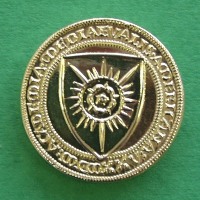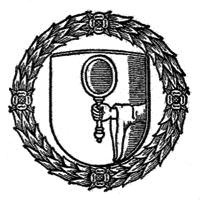Call for Papers: “Amassing Perspectives: Current Trends in Syriac Iconography”
September 17–18, 2021
Princeton University
The Department of Art & Archaeology at Princeton University invites paper proposals on late antique and medieval Syriac iconography and visual culture for a virtual conference to be held on September 17–18, 2021.
Monastery wall paintings in Syria and Egypt, the illuminations of the Rabbula Gospels, and the architecture and decorations of churches in regions as diverse as Turkey and India are just some of the rich visual culture extant from the late antique and medieval Syriac tradition. Though there is a long tradition of studying Syriac visual culture, this is a subject that has not typically been prominent in the broader field of Syriac studies, and there have been few monographs dedicated to the topic in recent decades. The aim of this conference is to gather diverse scholars from across the globe whose research touches on all aspects of Syriac iconography and visual culture in any geographic region from late antiquity throughout the Middle Ages, to roughly 1400 C.E. The conference will sum up the status quaestionis of research into Syriac art and architecture and spell out major desiderata for the field going forward.
We seek representation across academic disciplines—from art historians, archaeologists, historians, philologists, and more—and welcome the latest research being conducted on Syriac visual culture in any form. Papers might analyze the presence of varying artistic traditions in a particular monastic site or manuscript; evaluate unifying, transtemporal thematic imagery within any of the Syriac church traditions; propose a theoretical framework for the study of Syriac art; examine how medieval Syriac authors and theologians engaged with iconoclasm; study the migration and employment of artisans through architectural continuities between multiple sites; or consider the role of portable objects in artistic exchanges. This call is open to and aimed at scholars in all stages of their career, from graduate students to senior scholars. All are invited to submit abstracts related to any topic on Syriac iconography and visual culture from the late antique and medieval periods. Abstracts should be between 300–500 words and should be submitted to acady@princeton.edu by March 15, 2021. Women; Black, Indigenous, and People of Color (BIPOC) scholars; and people traditionally underrepresented in Syriac studies are especially encouraged to apply. Authors will be informed in early April of the results, and accepted papers will be due September 1, 2021.
The conference will be held virtually over Zoom due to the uncertain nature of the COVID-19 pandemic. Complete papers will be pre-circulated to registered conference participants in September 2021, and the conference itself will consist of roundtable workshops discussing and developing the material. Given the academic significance of such a conference, it is hoped that the conference proceedings will develop into an edited volume, reflecting state-of-the-art research on Syriac visual culture.
The conference is hosted by the Department of Art & Archaeology at Princeton University with support from the Committee for the Study of Late Antiquity (CSLA) and the Center for Collaborative History (CCH). Interested persons may contact Alyssa Cady (acady@princeton.edu) or Emily Chesley (echesley@princeton.edu) with any questions.





